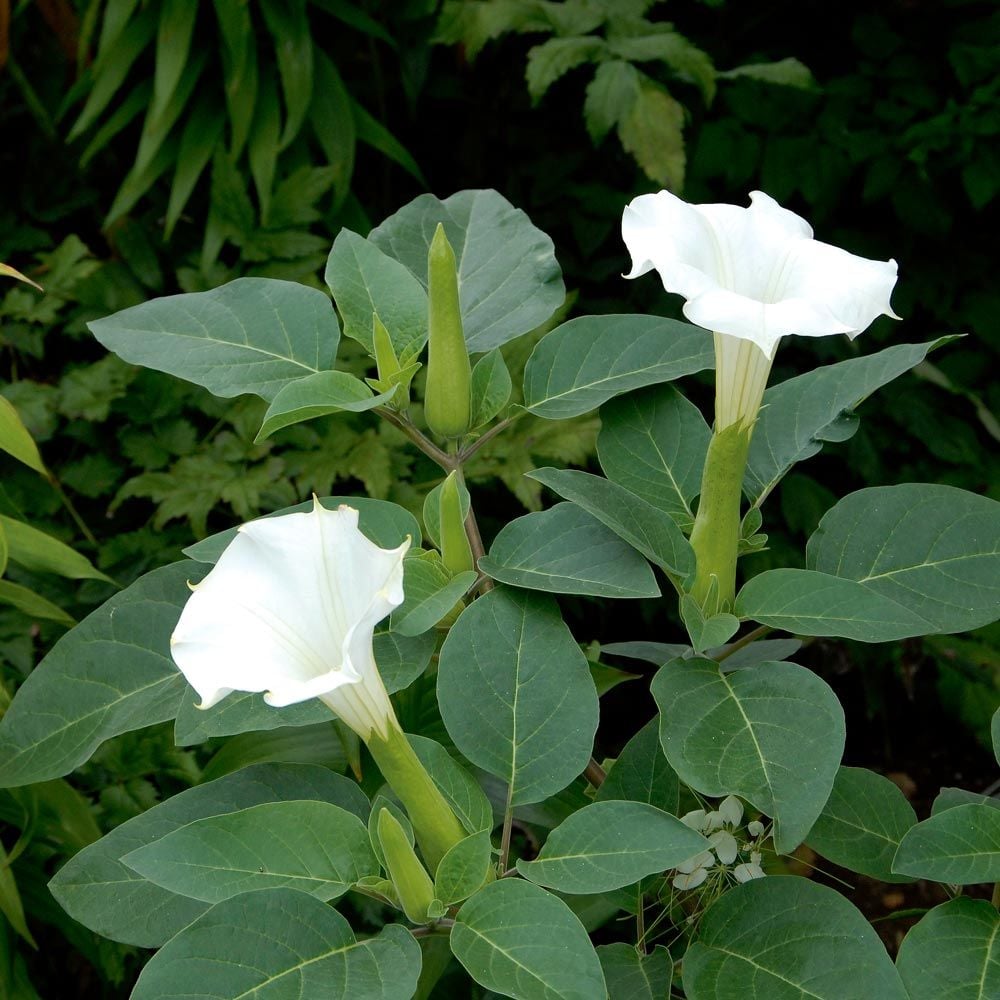Datura Plant: A Fascinating and Deadly Beauty
Introduction
The Datura plant, also known as moonflower, jimsonweed, or devil’s trumpet, is a genus of flowering plants that belong to the nightshade family. These plants are known for their beautiful trumpet-shaped flowers and potent psychoactive properties. While they are often cultivated for their ornamental value, Datura plants are also highly toxic and can be deadly if ingested.
Appearance and Habitat
Datura plants are annual or perennial herbs that can grow up to six feet tall. They have large, dark green leaves and trumpet-shaped flowers that can be white, yellow, or purple in color. These flowers bloom at night and emit a sweet, intoxicating fragrance that attracts pollinators such as moths and bats.
Datura plants are native to the Americas but have been introduced to other parts of the world, where they have become invasive species. They can be found growing in disturbed habitats such as roadsides, fields, and waste areas.
Psychoactive Properties
One of the most intriguing aspects of Datura plants is their psychoactive properties. The plants contain tropane alkaloids, such as scopolamine and atropine, which have hallucinogenic effects when ingested. Ingesting even a small amount of Datura can cause intense hallucinations, delirium, and disorientation.

In many cultures, Datura plants have been used in shamanic rituals and spiritual practices to induce altered states of consciousness. However, the use of Datura plants for recreational or spiritual purposes is highly dangerous and can result in severe poisoning or death.
Toxicity and Dangers
Datura plants are highly toxic and should never be ingested. All parts of the plant, including the leaves, flowers, seeds, and roots, contain toxic alkaloids that can cause symptoms such as dilated pupils, dry mouth, rapid heartbeat, confusion, and seizures. In severe cases, ingestion of Datura can lead to coma, respiratory failure, and death.
Accidental ingestion of Datura plants is a common cause of poisoning, especially in children and pets. It is important to be aware of the dangers of these plants and to avoid growing them in areas where they can be accessed easily.
Medicinal Uses
Despite their toxicity, Datura plants have been used in traditional medicine for centuries. The alkaloids found in Datura have antispasmodic and analgesic properties and have been used to treat conditions such as asthma, cough, and pain. However, the therapeutic use of Datura is highly risky and should only be done under the supervision of a qualified healthcare provider.
Cultivation and Care
For those who are interested in growing Datura plants for their ornamental value, it is important to exercise caution and take appropriate safety measures. Datura plants can be grown from seeds or cuttings and prefer well-drained soil and full sun. It is important to wear gloves when handling Datura plants and to keep them out of reach of children and pets.
Conclusion
In conclusion, the Datura plant is a fascinating and deadly beauty that has captured the interest of botanists, gardeners, and enthusiasts around the world. While its trumpet-shaped flowers and psychoactive properties may be alluring, it is important to remember the dangers that come with this plant. Caution should always be exercised when dealing with Datura plants, and they should never be ingested under any circumstances. By respecting the toxicity of these plants and taking appropriate safety measures, we can appreciate their beauty while avoiding the risks they pose.